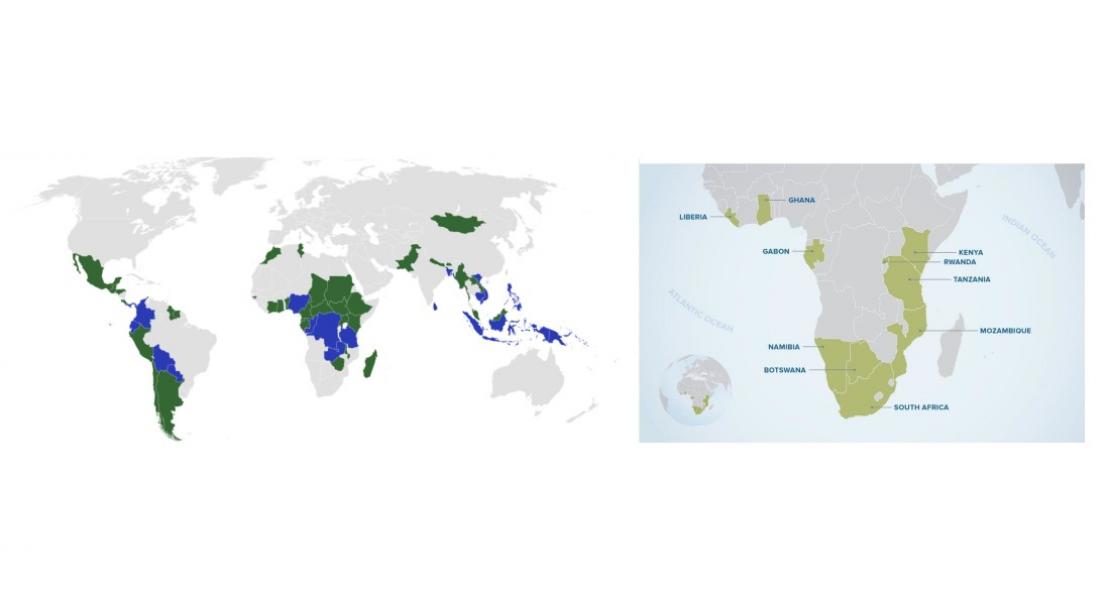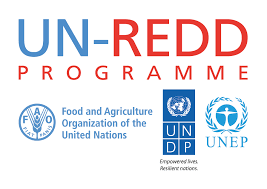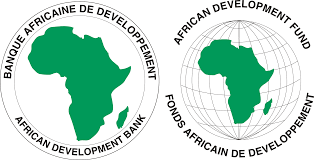On 15 May 2020 Senegal Environment Minister Abdou Karim SALL submitted a letter to the Executive Secretary of the Gaborone Declaration for Sustainability in Africa (GDSA), Dr Ruud JANSEN, stating the wish of the Government of Senegal to adhere to the GDSA and join the list of signatories.
The process of adhesion to UN REDD was also set in motion, through the appointment of Mr. Mamadou KORA as the REDD Focal Point at the Environment Ministry, and the transmission of a letter expressing Senegal's interest to join UN REDD to the UN REDD Secretariat, via the Ministry of Foreign Affairs of Senegal.
These milestones are the result of two official letters sent on 23 March by Hon. Ibrahima Baba SALL to Minister SALL, in his capacity as President of GLOBE Senegal / REPES (Réseau des Parlamentaires pour la protection de l’environnement au Sénégal), calling on him to launch the adhesion of Senegal to UN REDD and to the Gaborone Declaration for Sustainability in Africa (GDSA).
This action follows the launch of the GEF6 Project “GLOBE Legislators Advancing REDD+ and Natural Capital Governance towards the Delivery of the 2030 Agenda” at the National Assembly of Senegal last 12 February. At the launch, participants including the legislators affiliated to GLOBE Senegal and national project stakeholders were briefed of the aims of the project. In Senegal it will focus on strenghtening forest governance and funding through the adoption of a legal and institutional framework for REDD+; carrying out a “health check” on the framework of implementation of the Great Green Wall interventions in Senegal, to ensure that lessons learnt inform decision-making and that successes can be scaled up, and that private finance can be mobilised; and embedding the “natural capital approach” to decision-making across Government departments, on the basis of environmental economic accounting data.
It is understood that structured support through the UN REDD Programme will ultimately help Senegal benefit from international financial flows supporting sustainable forest management, as it will accompany a process of review of its existing forest governance framework to align it with REDD safeguards and mechanisms and with the delivery of the forest-based component of its Nationally Determined Contribution under the Paris Agreement, alongside the forest-based SGDs, post-Aichi biodiversity targets and disaster risk reduction commitments.
At the same time, participating in the processes of the Gaborone Declaration for Sustainability in Africa will grant the Senegalese government access to best international practices on ecosystem valuation and natural capital accounting (NCA), including support to identify funding opportunities for national NCA efforts; promoting environmentally responsible private sector initiatives, focusing particularly on agriculture, fisheries, extractives, and renewable energy; innovative conservation financing, and on generating data and building capacity to support policy networks, as data and monitoring are essential for incorporating natural capital into decision-making and pursuing sustainable production.
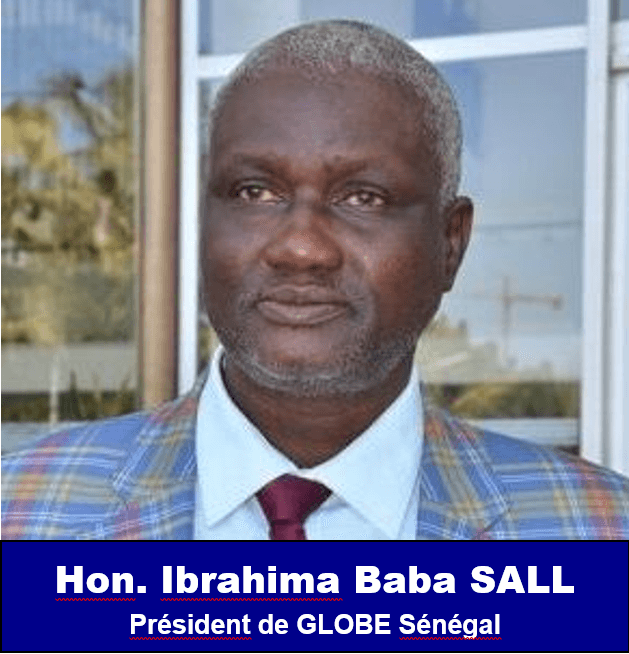 In the words of President SALL, adhesion to these processes will contribute to the successful delivery Plan Sénégal Émergent (PSE): "(...) To enable the Government of Senegal to have privileged access to best practices in the use of natural capital accounting instruments, it would be appropriate for Senegal to join the States parties to the Gaborone Declaration. This constitutes an opportunity to achieve the Sustainable Development Goals (SDGs) and the implementation of the Plan Sénégal Émergent". (...) "Therefore, positioning our country at the United Nations Programme for Reducing Emissions from Deforestation and Forest Degradation (REDD+) known as UN-REDD, would be an asset for better technical assistance, capacity building and reliable and effective policy advice to implement (...) a national forest monitoring system, forest emissions level, a National REDD+ Strategy and Action Plan and Information System on social and environmental safeguards."
In the words of President SALL, adhesion to these processes will contribute to the successful delivery Plan Sénégal Émergent (PSE): "(...) To enable the Government of Senegal to have privileged access to best practices in the use of natural capital accounting instruments, it would be appropriate for Senegal to join the States parties to the Gaborone Declaration. This constitutes an opportunity to achieve the Sustainable Development Goals (SDGs) and the implementation of the Plan Sénégal Émergent". (...) "Therefore, positioning our country at the United Nations Programme for Reducing Emissions from Deforestation and Forest Degradation (REDD+) known as UN-REDD, would be an asset for better technical assistance, capacity building and reliable and effective policy advice to implement (...) a national forest monitoring system, forest emissions level, a National REDD+ Strategy and Action Plan and Information System on social and environmental safeguards."
One of the short-term outcomes is that Senegal will join the Community of practice on Natural Capital Accounting (NCA) launched last 21 November in Kampala, Uganda, at the first ‘Africa Forum on Natural Capital Accounting’ with representatives from 18 African countries. NCA and the System of Environmental-Economic Accounting (SEEA) provide a way to generate consistent and comparable data on natural resources – such as land, forests, and water – and their interaction with the economy, including the ecosystem services that natural resources provide. The Community of Practice will identify common challenges and opportunities and discuss how countries can support each other in mainstreaming natural capital considerations into policy.
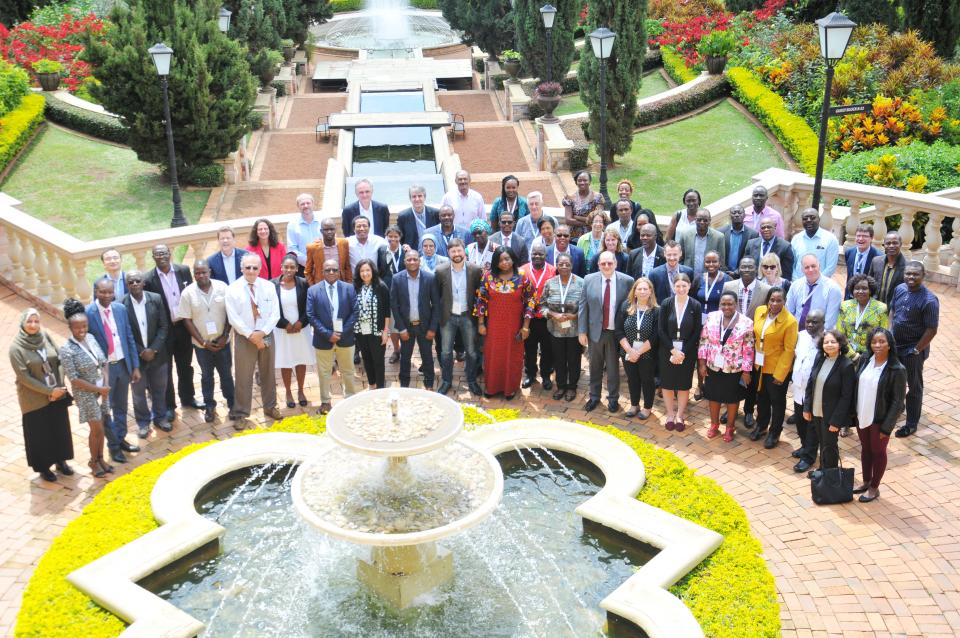
The day-long forum was co-organized by the Gaborone Declaration for Sustainability in Africa (GDSA), the United Nations Statistics Division (UNSD), and the World Bank through its Global Program on Sustainability (GPS). The Government of Uganda hosted the event and welcomed the participants by providing opening statements.
The Community of Practice will be supported by the World Bank, the Gaborone Declaration for a Sustainable Africa (GDSA), the United Nations Statistcs Division (UNSD) and the Government of Netherlands.

